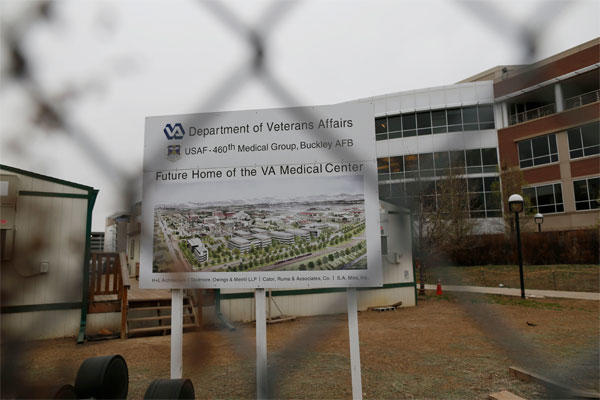The federal government may end up holding a yard sale of sorts to fund completion of a veterans' hospital near Denver, Colorado.
Sen. Johnny Isakson, chairman of the Senate Veterans Affairs Committee, on Tuesday said everyone has a responsibility to think "outside the box" to find a way to complete construction of the VA Medical Center in Aurora, which has exceeded its original costs by about $1 billion.
"I've ordered the [General Accountability Office] to do a study of surplus property, that which would be liquidatable, to try and find way to raise money to go to Veterans Choice to offset what might be borrowed from it" to complete the project, Isakson told the committee.
Isakson said the committee will meet again Wednesday with Veterans Affairs Department officials where he hopes a number of alternatives can be discussed.
Isakson's comment indicated he is at least sympathetic to the VA's proposal to divert some $700 million from money appropriated last year to fund the Choice Act, which enables more veterans to get care at non-VA facilities.
He made his comment after Sen. Richard Blumenthal, D-Connecticut, told VA officials testifying before the panel that the proposal "is a non-starter … it's just unacceptable."
VA Deputy Secretary Sloan D. Gibson, one of those testifying, said the VA on Tuesday had formally sent letters to the House and Senate veterans committees, as well as the appropriations committees, requesting increased authorization to complete the Colorado project, including authorization to use $730 million from the $5 billion Choice Act fund for hiring staff and upgrading facilities.
"In years past I would tell you it's petty likely that if VA went looking for that kind of money we could have found it, but because of the work we've been doing over the past year to accelerate access to health care … we don't have $700 million sitting on the sidelines," Gibson told Blumenthal. "There are no easy answers here."
The VA began pitching use of Choice Act funds to alleviate spending issues elsewhere earlier this year, saying it was finding demand for the Choice Act among veterans not as great as they thought it would be.
Under pressure from veterans' service organizations and others, the VA has begun modifying aspects of the Choice Act to increase the number of veterans who may be able to go outside VA for some care.
But VA officials still argue that there is plenty enough money in the Choice Act fund to meet its needs and still use some of it to meet demands elsewhere. And that now includes finally completing the Denver medical facility that has emerged as the poster child for failed construction plans and cost overruns.
Blumenthal said he has seen the Colorado facility, calling it "a vast, hulking, shell of a campus that is a mockery of government contracting."
But he said he and veterans he has spoken with fear that diverting money from the Choice Act for construction needs will result in deferred health care across the system.
"This nation is capable of doing better for its veterans, and a supplemental [budget] appropriation for example might be an alternative," he said.
-- Bryant Jordan can be reached at bryant.jordan@military.com





























